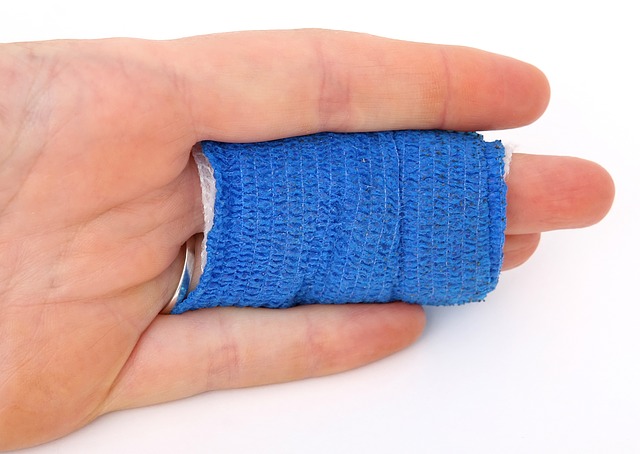Many people seem to think that the reason I’m fit and well is because of my genes. Undoubtedly genes do play a part. Some people have an increased risk of particular types of cancer because they have an inherited gene fault. Even in these situations, the development of that specific cancer isn’t inevitable:
Cancer Research UK says:
“As well as a gene fault, many other factors need to be in place for a cancer to develop. Because the other factors are not always in place, the cancer may seem to skip a generation. A parent may have the gene and not develop cancer but their child who inherits the same gene does develop cancer.”
The charity goes on to say that we don’t know for certain what these “other factors” are.
It seems highly likely that what we eat and drink play a part in this. Exercise has also been shown to help prevent some cancers and reduce the chance of re-occurrence of others.
Genetics and dementia
Kaitlin Casaletto, the first author of a study published in the journal Alzheimer’s and Dementia tells Inverse that active cognitive and physical lifestyles were linked to a 55 percent slower rate of cognitive decline in 105 patients who carried a gene linked to frontotemporal lobar degeneration (FTLD), which is a type of dementia. So the idea that if you “have a gene for something bad” you will necessarily have no control over what happens to you is far from the truth of what will happen.
High genetic risk and other factors
A study from the American Association for Cancer Research found that:
Healthy lifestyle factors such as abstinence from smoking and drinking, low body mass index, and exercise correlated with decreased cancer incidence, even in individuals with a high genetic risk.Patients with an unfavorable lifestyle and the highest quintile genetic risk were 2.99 times (in men) and 2.38 times (in women) more likely to develop cancer than those with a favorable lifestyle and the lowest quintile of genetic risk.
I love this quote from Dean Ornish:
“Your genes are not your fate… if you change your lifestyle, you change your genes.”
Professor Ornish is the president and founder of the nonprofit Preventive Medicine Research Institute in Sausalito, California and a Clinical Professor of Medicine at the University of California, San Francisco. We can assume he knows what he is talking about!
Genes and development
The Developing Child website at Harvard University says this:
“Contrary to popular belief, the genes inherited from one’s parents do not set a child’s future development in stone. Variations in DNA sequences between individuals certainly influence the way in which genes are expressed and how the proteins encoded by those genes will function. But that is only part of the story—the environment in which one develops, before and soon after birth, provides powerful experiences that chemically modify certain genes which, in turn, define how much and when they are expressed. Thus, while genetic factors exert potent influences, environmental factors have the ability to alter the genes that were inherited.”
Genes and disease risks
Researchers at the University of Alberta reviewed all the main studies over the last 20 years examining the relationships between common gene mutations and different diseases and conditions. They concluded:
“In most cases, your genes have less than five per cent to do with your risk of developing a particular disease.”
They go on to say:
“It is becoming increasingly clear that the risks for getting most diseases arise from your metabolism, your environment, your lifestyle, or your exposure to various kinds of nutrients, chemicals, bacteria, or viruses.”
The website Genes In Life says:
“You can’t change your genes, but you can change your behavior. There are steps you can take to prevent disease, lower your risk, and find problems early when most treatments work best.”
A study from the Vanderbilt University Medical Center found that:
“People with a high polygenic risk score for colorectal cancer could benefit more at preventing the disease by leading healthy lifestyles than those at lower genetic risk.
“In the analysis, lifestyle scores of unhealthy, intermediate and healthy were determined according to waist-to-hip ratio, physical activity, sedentary time, processed and red meat intake, vegetable and fruit intake, alcohol consumption and tobacco use.”
A study from Washington State University (USA) of identical twins found that the more physically active siblings in identical twin pairs had lower signs of metabolic disease, measured by waist size and body mass index. 70 pairs of twins were followed from 2012 to 2019. This also correlated with differences in their epigenomes, the molecular processes that are around DNA and independent of DNA sequence, but influence gene expression. The more active twins had epigenetic marks linked to lowered metabolic syndrome, reducing the risk of heart disease, stroke and type 2 diabetes.
Because the twins were identical and had the same genes this is important evidence that a healthy lifestyle influences health outcomes. If genetics and DNA sequence were the only driver for biology, then essentially twins should have the same diseases. But they don’t.
Genes and old age
People often get sicker as they grow older, but research from Gil McVean of the University of Oxford and colleagues finds that the impact of a person’s genes on their risk of getting sick actually wanes with age. McVean says
“Our work shows that the way in which genetics affects your risk of getting a disease change throughout life. For many diseases, genetic factors are most important in determining whether you will get a disease early in life, while — as you age — other factors come to dominate risk.”
The reason I am fit and healthy is partly down to my genes, but is also down to the way I eat, the amount of exercise I take, my interest and participation in life. It’s partly down to luck. I’ve had many great things happen in my life. But genes and luck don’t explain everything about my health and well-being. Genes and luck don’t explain everything about your level of health and well-being.
I often think about life as a playing field. Your genes and early upbringing may well establish the size and shape of your playing field. It may be difficult to make it bigger or change its shape. If you have a gene that predisposes you to a particular illness you may have a smaller playing field than someone who doesn’t. If you were belittled as a child, it may make your playing field a particular shape that is difficult to change.

But (and it’s a big but) most of us are not using all our playing field. We are not functioning as well as we can. We are not living up to our potential. We are not exploring and living in the whole of our playing field. Our diet, our habits and our lifestyle affect how much of our playing field we are able to occupy.
As people get older, they often use less and less of their playing field. With time they may even become unaware of how big the playing field is. They may be aware of how much function, strength and stability they have lost, but see it as inevitable. Just something that happens as you get older.
If you feel that you’re not using all your playing field, I urge you to become curious about what’s out there. Start to explore the rest of your life that is waiting just out of sight. IT belongs to you.


